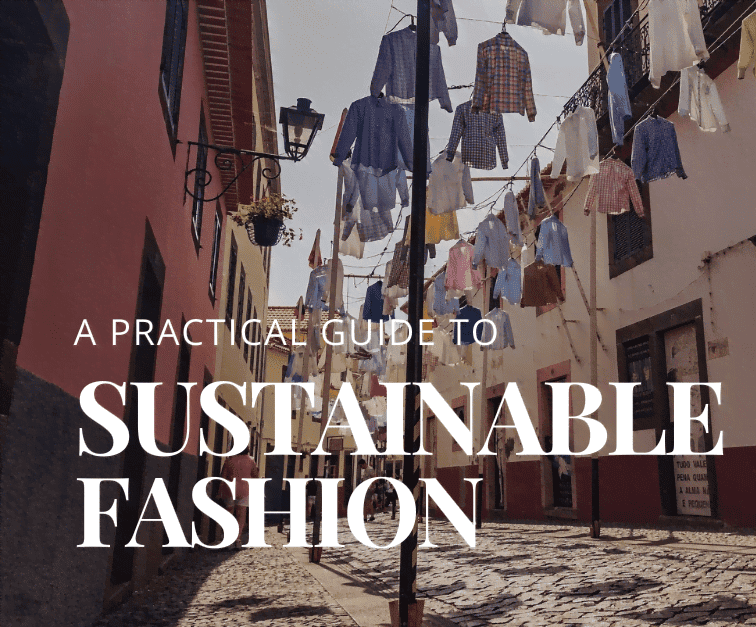Last Updated on May 1, 2023 by Our Editors
Several companies from every vertical imaginable are taking a sustainable turn these days. Which should be for the better, right? But what happens when they underreport their corporate climate commitments to escape the keen scrutiny of eco-enthusiasts?
Underreporting credentials, beginning with taxes, has always been in trend. This classic gimmick has an obvious rationale- to escape the increasing scrutiny about brand transparency. Greenhushing is precisely this.
Enterprises have taken to underreporting their sustainability and climate emission targets which saves them some face in case they face a heavy backlash for greenwashing.
The deliberate silence on achieving climate targets is rather convenient. After all, why would you always need to profess your credibility again and again, only for it to be lambasted? But as in the case of all silences, greenhushing tells more than it conceals.

The main dilemma around the term is if greenhushing is simply staying quiet and let your actions do the talking, or is it being vague? Can it deal some damage to the sustainability goals and the push to hold companies accountable to their practices?
We think greenhushing can be the next big eco trend in 2023, besides greenwashing. It might even overtake the latter, given the outlet of opacity it provides to companies that don’t want to lose their hard-earned reputation in the market as the share of conscious consumers grows by the day.
The Story of Greenhushing- An Imperative for Damage Control

Greenhushing means keeping climate commitments and environmental accomplishments under the radar. This is the opposite of greenwashing, where companies aggrandize their claims of being eco-friendly and overstate their sustainability targets.
Greenwashing is a marketing tactic which is like a football player playing on the attacking side. It is out to achieve something, strike a goal in the market and score as many points it can.
Even if it means to overstate what the company has achieved with regards to sustainability, greenwashing employs the classic trick in the book- deception. It might sound awfully similar to its sister trend, greenlabelling.
The story of greenhushing begins from this point onwards. It didn’t take long for several watchdogs to see what was wrong with greenwashing. The trend was another way to create a market for goods, by appealing to conusmers’ ethical stance and interest in ESG credentials.
Since customers, especially the younger lot, tend to dish out more money to go the extra mile and ensure that they are using the most ethical, recyclable and gentle goods, the market was as lucrative as it was robust.
The problem was that greenwashing companies told too much and showed too much, without actually doing anything.
Companies began coming under fire for aggrandizing their credentials, and they still are, the latest being Hyundai Motor UK. With the big reveal of what they had been up to, several companies began losing their customers and credibility.
The liar’s pants finally caught fire- in fact they were charred. Customers also don’t hold back from expressing their discontent at putting their money where it didn’t belong. However, the scrutiny also extended to companies who published their credentials, but were still blasted for not doing enough.
And so, came up the obvious defence. If publishing climate credentials earned bad press and allegations of ‘not doing enough’, then why publish them at all? Hence, came up greenhushing- the secret defense player that employed subtlety.
What Can Greenhushing Imply for Sustainability Goals and Transparency?
For advocates who don’t call out greenhushing for what it is, companies are still in for the good cause without making a hue and cry about it. Sounds like work in silence, and let success make the noise.
But is this all to it? And what does it imply for sustainability?
Silence is a debatable proposition and even somewhat counterproductive. Corporations and companies do have their own reasons for not publishing their accomplishments, just in case they are pushed more beyond their limits.

However, greenhushing continues to be separate from greenwashing, and also a sophisticated tactic belonging to the umbrella mostly employed by industry mammoths who in fact can afford taking steps towards ensuring and upholding transparency.
Instead of showing and telling too much as in greenwashing, you can escape obvious attention by adopting a comfortable silence. It’s becoming apparent to companies now that any noise or ‘buzz’ would invite attention and potential bad press, which is why they choose to adopt greenhushing, said Jason Jay, director of the Sustainability Initiative at MIT Sloan.
Greenhushing might seem like a genuine save from bad reputation and possible trouble with regulation agencies and watchdogs. But the aspect of don’t ask and don’t tell is somehow as problematic as greenwashing, if not more.
The trend of underreporting accomplishments and target achievements can negatively affect the sincerity of a commitment towards sustainability and achieving net zero emission targets.
There are several reasons for this conclusion. First off, a vacuum can mean many things- most prominently, it conceals the fact that several companies might not even do what is expected of them. More than meaningful silence that doesn’t need validation, greenhushing can indeed create ambiguity. Or worse, it can drive consumers away more than creating brand trustworthiness.
Consider this- despite the fear of being accused of opportunism, is it alright if the brand has no defining examples of sustainability in the first place?
Secondly, in a time when consumers are trying to go the extra mile in ensuring that their contribution from the cart counts, how does it justify brands going MIA completely because they couldn’t take the heat? The commitment to not making credentials public may be voluntary too, but in most cases it is deliberate.
The result is a huge void which can disincentivize almost everyone, most of all climate laggards, in taking some steps towards being responsible. In this case, a display of modesty might invite more criticism instead of avoiding it.
Not telling the truth because it might hurt is also equivalent to lying, especially when we need more transparency and initiative from brands about what they are doing about the planet and associated ethics.
Going Green, Going Dark, Going MIA: Where Does It Leave Us?
Going dark also overrides going green, as South Pole aptly titled its article that summarises the findings of its 2022 Net-Zero report. The report says that 1 in every 4 companies are making the start towards preventing climate change while resorting to greenhushing.
South Pole CEO Renat Hueberger expressed his concern over this spreading pathology of companies playing dodgeball with criticisms. Hueberger said that making a start on climate ambition is impossible if companies continue to rally in ‘silence’.
Renée Morin, Chief Sustainability Officer at eBay also adopted the same tenor on the importance of corporates to speak up, honestly and openly about how can they contribute. However, the Net Report 2022 also found that the fear of disrepute has goaded some firms into keeping quiet.
We cannot ignore this aspect while dealing with greenhushing, and can attribute it to the prominence of cancel culture rather than a call-out culture. Smaller firms might find it difficult to scale things up in compliance with targets and the increasing pressure to go green.
The tendency to discredit small, but genuine efforts at upholding ESG commitments is where greenhushing by larger culprits can wipe out their diminutive competitors and peers entirely. While regressive greenhushing might give a cover for corporates to duck under, smaller firms still bear the brunt of excessive scrutiny and a lack of honest dialogue.
The established trajectory and arguments leave us with a certain conclusion, albeit with nuances. Greenhushing is indeed detrimental to climate ambition and the spirit of collective action. While the drive towards being modest and not overdoing it seems understandable, the trend is an attractive proposition for brands who wish to eschew accountability and dialogue.
The cure to this symptom is a conducive environment, where we give brands a chance at being climate active, while holding them up to a legitimate standard according to their respective scale of production. A constant vigil on targets can be productive only when we engage with brand actions and commitments over the year.
Cancelling any enterprise in a snap can also contribute to the harm and close the doors for open communication between brands, watchdogs and consumers. Greenhushing leaves us at crossroads of judgement and accepting responsibility. Thus, the question that we would like to leave you with is about the weight of silence and what can it symbolize for the world at large.
More vagueness than modesty, greenhushing might not be on the radar. Still, being under it raises more doubts that should be considered with a nuanced understanding about corporates and their intent.














